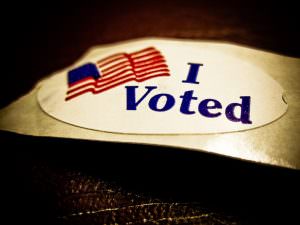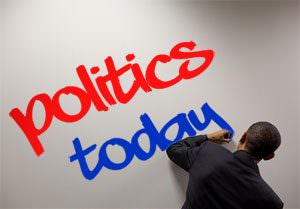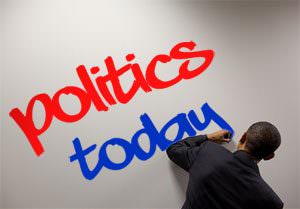No Room for the Poor in This Election
It's not surprising that in Thursday's vice presidential debate Paul Ryan didn't mention the millions of working poor who would suffer should he and Mitt Romney win in November, but I expected more from Joe Biden.It's not surprising that in Thursday's vice presidential debate Paul Ryan didn't mention the millions of working poor, but I expected more from Joe Biden.
In 90 minutes of debating, Rep. Paul Ryan failed to explain why the Romney-Ryan budget plan wouldn’t inflict hardship on the middle class and the working poor. Actually, poor people weren’t mentioned much, even by his foe, Vice President Joe Biden. This debate was about the middle class, that somewhat amorphous demographic at the center of the presidential campaign.
It’s not surprising that Ryan, the Republican vice presidential nominee, didn’t mention the millions of Americans on Medicaid and other social programs who would be badly damaged if his government-slashing budget plan, supported by running mate Mitt Romney, becomes law. But I expected more from Biden, especially after he talked in the debate about how he was influenced by Catholic Social Justice doctrine, which advocates helping the poor.
First, the theatrics of the event. Biden was more experienced and domineering, although his smile sometimes verged on a smirk. “This is a bunch of malarkey,” he said about Ryan’s criticism of the Obama administration’s Middle East policy. “Nothing he said is true.” Ryan remained calm under the attack and rattled off statistics that kept journalistic fact checkers busy but possibly bewildered much of the audience. The media reviews will probably be kind to both Biden and Ryan.
There was a sharp difference on abortion, Ryan opposing it except in cases of rape, incest or a threat to the mother’s life — distancing himself a bit from his party’s farthest right. Biden, like Ryan a Catholic, said he didn’t think “we have the right” to tell women they can’t control their bodies.
In the end, it will be up to President Barack Obama, rather than Biden, to make his case in the second and third debates with Romney and to undo the damage he inflicted upon himself in the first one.
Ryan is most famous for his budget plan, passed by the House, which would cut taxes for the wealthy and sharply reduce government spending, except for defense. The cuts would force local governments to decrease funding for schools, law enforcement and other services, as well as pare appropriations for such federal programs as veterans care, according to an analysis by the Center on Budget and Policy Priorities. In addition, the Romney-Ryan proposal envisions turning Medicare into a voucher plan for those under 55, and sharply reducing Medicaid, which provides health care for the working poor, the disabled and the impoverished elderly.
Biden pressed Ryan for details. “What is your specific plan for seniors who can’t make up the difference [between their voucher and the actual cost of medical care]?” he asked.
Ryan wouldn’t bite. He echoed Romney, saying a Romney-Ryan administration would deny tax loopholes to the wealthy and decrease rates. When Biden said this wouldn’t produce enough money to cut the deficit, Ryan merely claimed that six studies, which he did not name, verified that the “math holds up.”
And he said, “We want to work with Congress” to achieve these goals — this from a House Republican leader who steadfastly refused to negotiate seriously with Democrats in the congressional budget dispute.
Ryan declined to explain his plan to give seniors vouchers with which they would purchase health insurance. As in the past, he spoke of how his grandmother, who suffered from Alzheimer’s disease, had been helped by Medicare, just as his mother is a Medicare recipient now. But, he said, the best way to save it is to “reform it for my generation” — installing the voucher plan for those under 55.
And he didn’t acknowledge the harm the Romney-Ryan budget plan would do to those dependent on the social and economic safety net that has been part of American life since the 1960s.
Biden didn’t either.
Instead, the vice president spoke of the middle class. He said that the Republicans, rather than signing no-tax-increase pledges with anti-tax activist Grover Norquist, ought to be pledging relief to the middle class.
This was a gaping hole in the conversation, and a failure by Biden to take note of the working poor, who have been most abused by the long recession.
Politics explain why. This election is being fought in a few battleground states, in suburbs and affluent parts of cities where the middle class predominates. Obama, Biden and the other Democrats won’t spend time in the impoverished neighborhoods of Detroit and Cleveland, when the heavier-voting suburbs will determine who captures Michigan and Ohio.
This is not a new development in American politics. But the dynamics of this year’s campaign have made it worse, as the swing states are more important than ever.
But as government cuts back — no matter who wins the election — the burden will continue to fall heaviest on the poor. Biden, who boasts of his working-class roots, should have brought this into the debate discussion.
Your support matters…Independent journalism is under threat and overshadowed by heavily funded mainstream media.
You can help level the playing field. Become a member.
Your tax-deductible contribution keeps us digging beneath the headlines to give you thought-provoking, investigative reporting and analysis that unearths what's really happening- without compromise.
Give today to support our courageous, independent journalists.






You need to be a supporter to comment.
There are currently no responses to this article.
Be the first to respond.